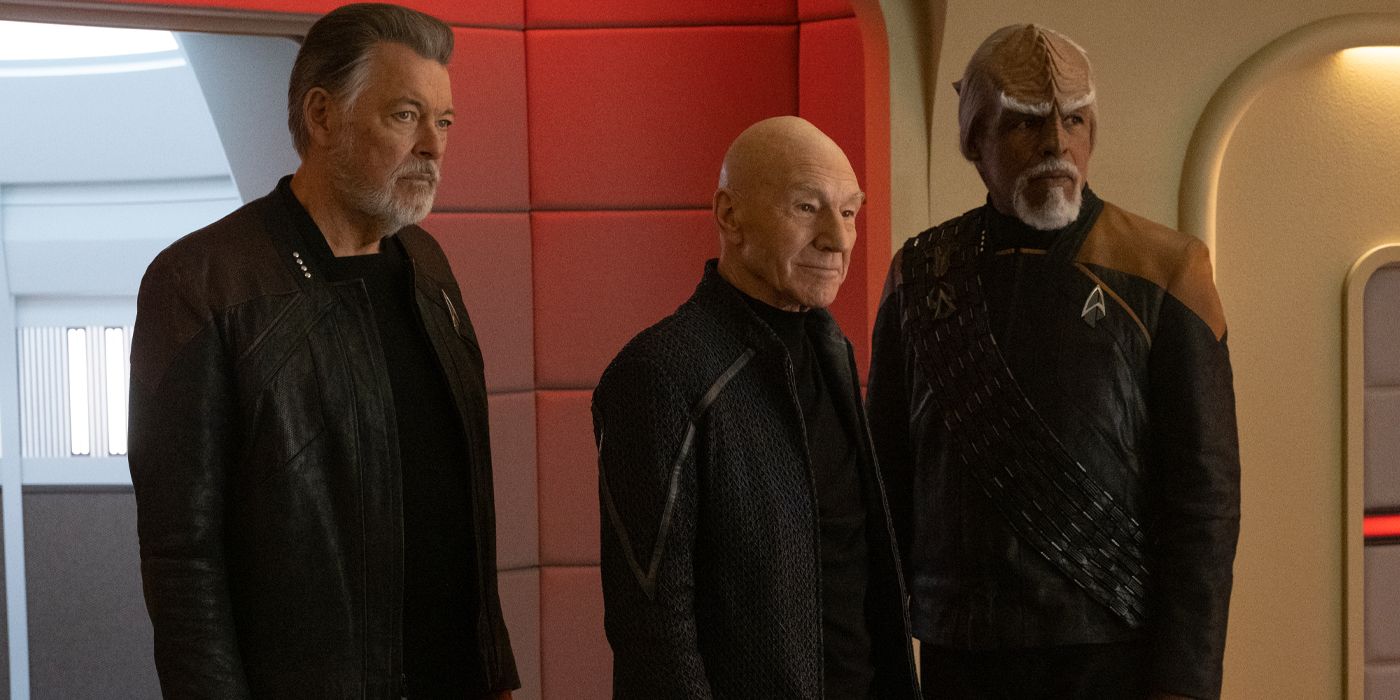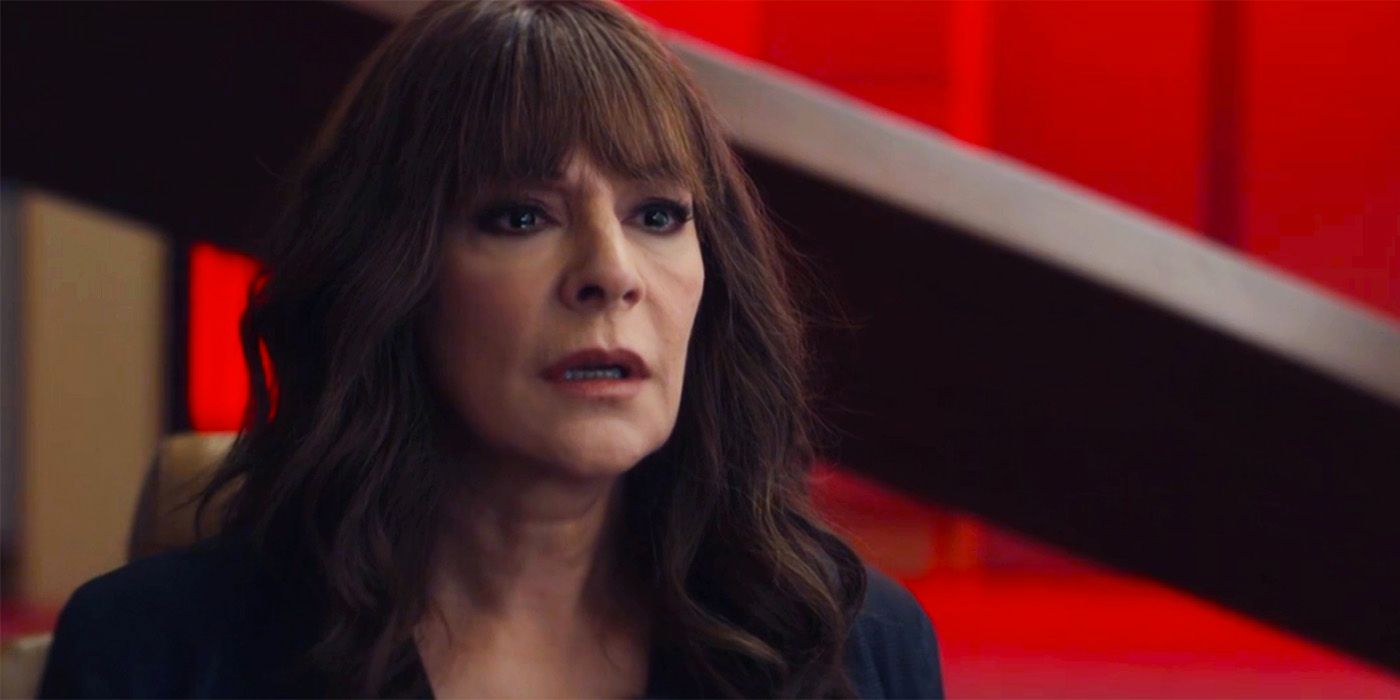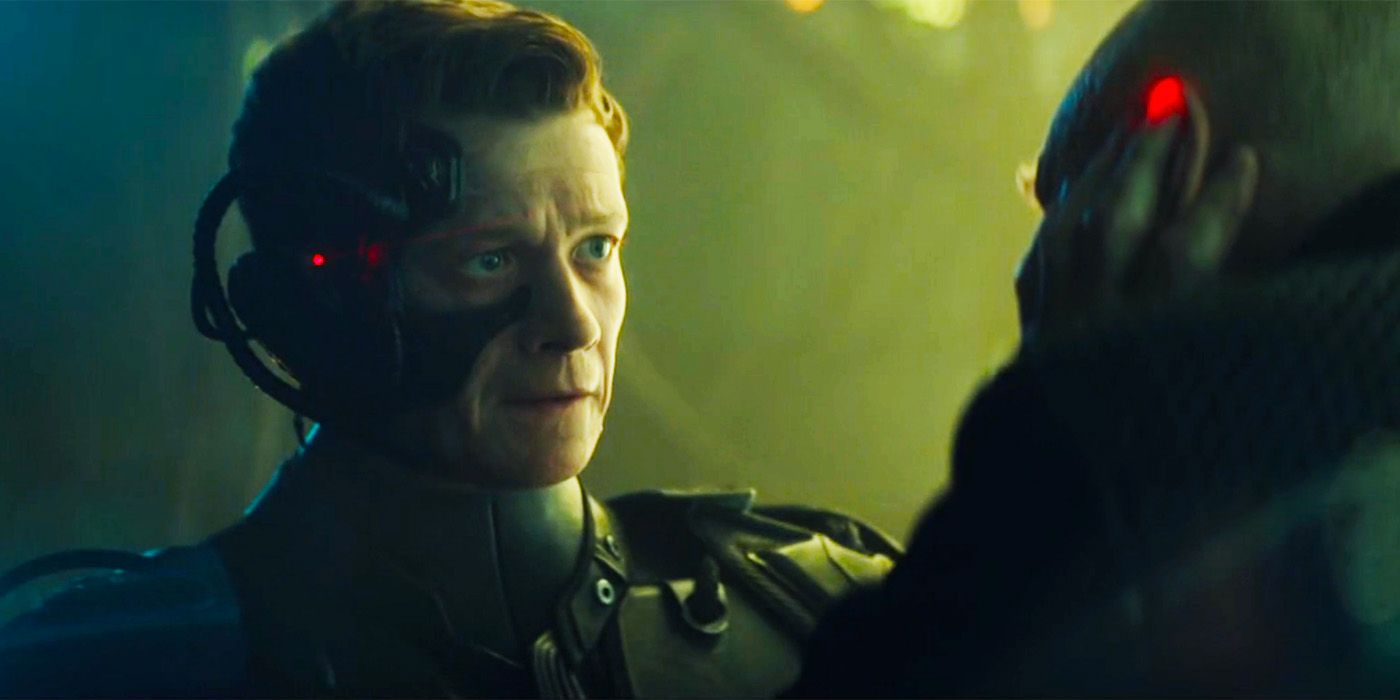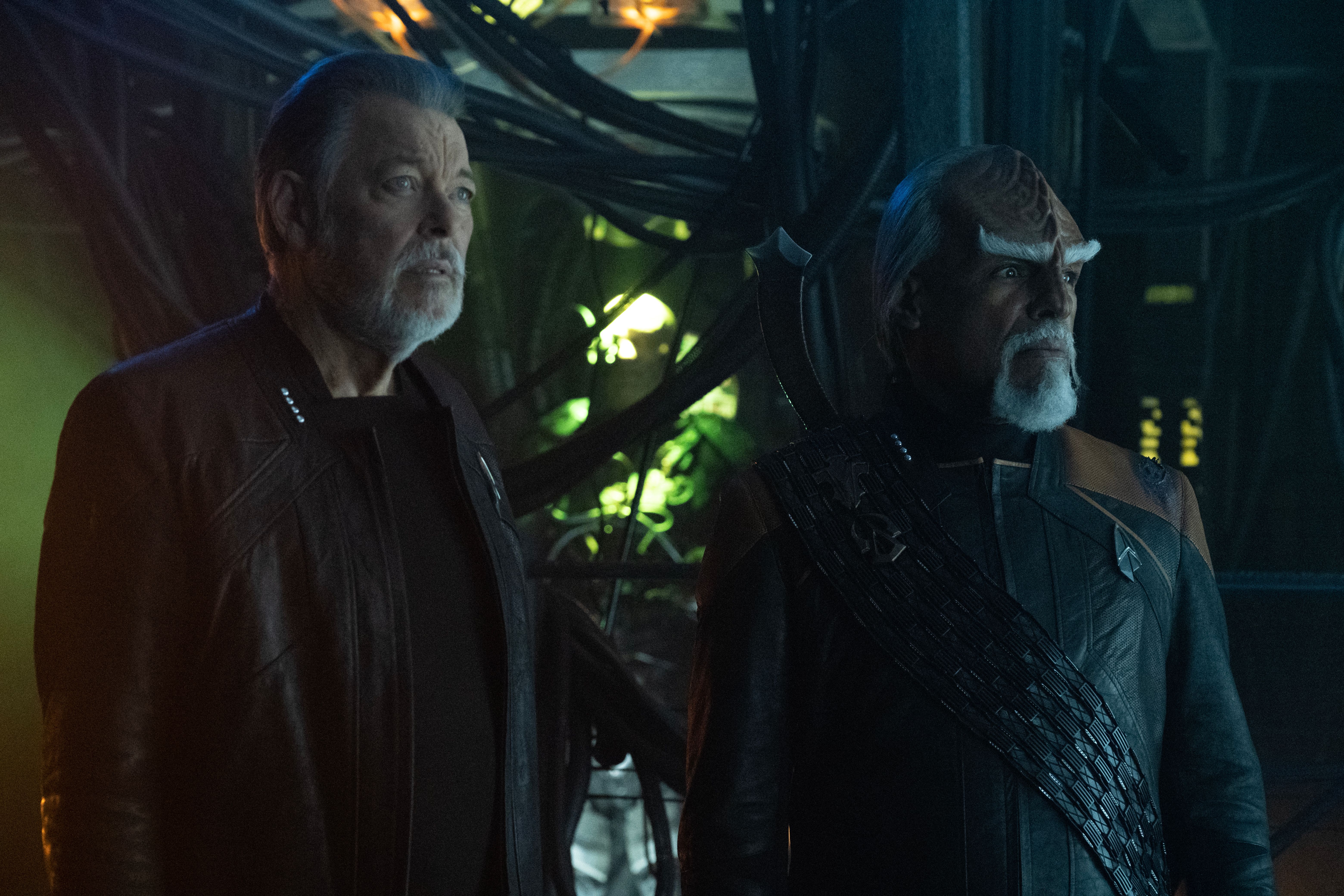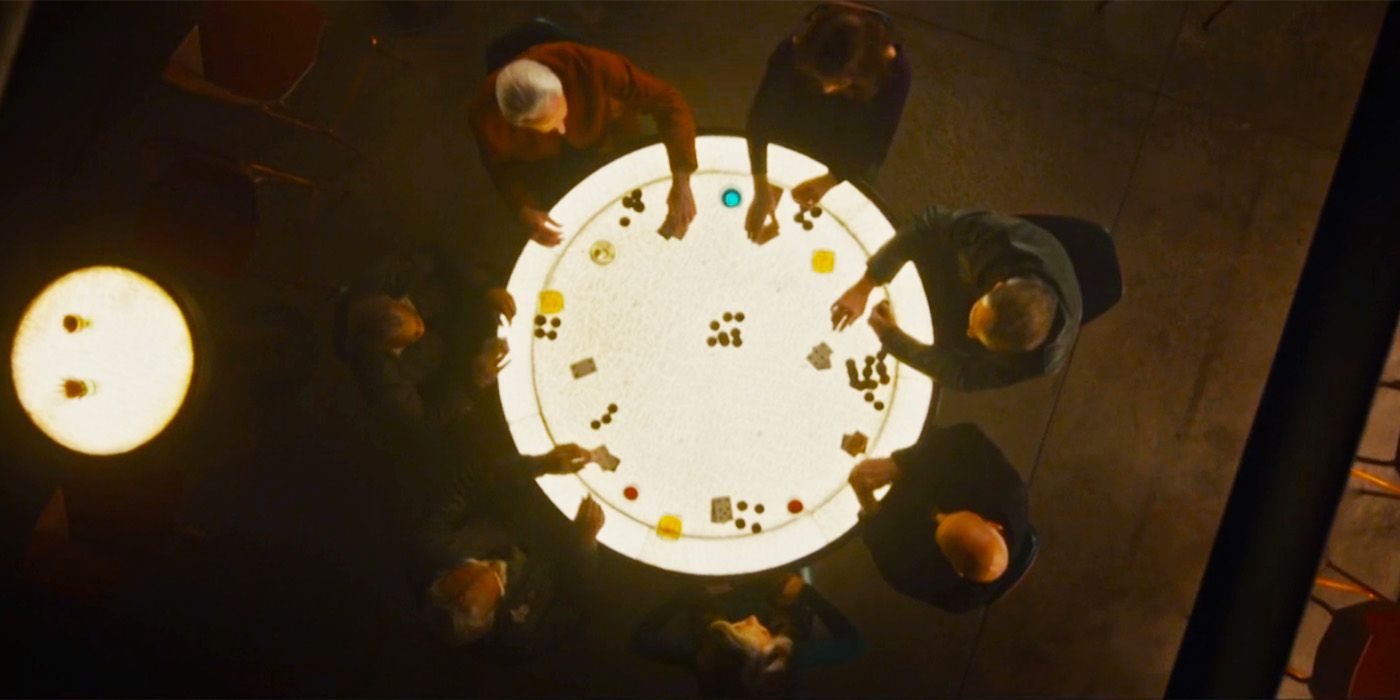After three awe-inspiring seasons, Star Trek: Picard came to an end this week with a series finale that will go down as one of the most satisfying and soul-stirring endings to ever grace television screens. Its success is largely owed to Season 3's showrunner Terry Matalas, who brought together an exceptional team of writers and creatives to bring into reality a vision that became a fitting send-off for the beloved cast of The Next Generation.
Ahead of the finale, Collider had the opportunity to once again sit down one last time with Matalas to discuss how they pulled off that surprising Q (John de Lancie) post-credit scene, the 45-minute poker scene in 10 Forward, that pivotal moment between Picard (Patrick Stewart) and Jack (Ed Speleers), how they arrived at Deanna (Marina Sirtis) and Riker's (Jonathan Frakes) telepathy saving the day, the Star Trek: Voyager reunion between Seven (Jeri Ryan) and Tuvok (Tim Russ), bringing back Walter Koenig to voice President Chekov, and so much more.
COLLIDER: Season 2 really felt like the last time we were going to see Q, so I was thrilled that the legacy continues on. Can you talk about bringing him back and how he's essentially Jack's problem now?
TERRY MATALAS: Where better to end than at the beginning, right? It was an honor. It felt right to go back to “Encounter at Farpoint,” that while humanity's trial was over for his father, it now begins again for his son. And it was almost as if, like that moment at the end of “All Good Things…” when Q goes to whisper about, “There's a thing you should know, Jean-Luc,” and then he's like, “Ah, you'll see.” Maybe that was about Jack.
It was an idea I had, actually, right when I started developing it, and I told John [de Lancie] about it on his last day, and he was like, “Absolutely, I'll come back. It would be amazing.”
Oh, I love that. I also really loved that the crew was essentially saved by Deanna and Riker's telepathy, which I talked about loving that aspect. Can you talk about the writers' room and arriving at that decision for that being the rescue plan?
MATALAS: We knew we needed a way for them to find each other. I’m trying to remember if it was [Christopher Monfette], or who came up with that idea, which is so beautiful. And it's also a way to sort of put to bed that Deanna-flying-the-ship bit, as well, in this wonderful rescue. The impetus for it was, I always had this image, and I drew it on a whiteboard – and I didn't think I'd ever be able to pull it off – which was, Picard and Jack and the Enterprise D flying over them. That was a moving moment I wanted to do as a director, and I built it into the script. I was like, “No, I want the shot, I want the shot,” and everybody's like, “Okay, we'll be able to do it.” I was like, “I'm not gonna be able to pull this off,” and visual effects is like, “Oh, I think we could do it.” And then I was like, “There's no way.”
And so, it was like, how can we get to that moment? And it was also an emotional moment, too, because it comes off of the line, Jack saying, “I'm not alone,” and it truly was his family coming to rescue him at that moment. It was a culmination of all those ideas of the family truly together, and that love conquers all, truly, and it's the love of that, and the end of that arc for the Rikers is what manages for the Enterprise to find them.
That leads in so perfectly to my next question, which is, we've talked about how fatherhood is Picard's final frontier, and coming face-to-face with his willingness to sacrifice himself for Jack. It's this beautiful moment, but I'm curious for you as a director, can you discuss framing that scene and pulling all of that emotional poignance out of it?
MATALAS: Well, it all comes down to that scene. If that scene doesn't work the season doesn't really work. It's about a child looking for connection but doesn't realize the connection he really needs is his father. And it really isn't until that moment that that willingness to sacrifice himself for his son in that hug, that sort of snaps the kid out of this strange Borg euphoria.
It was all there, but really, it comes down to Sir Patrick Stewart and Ed Speleers in that moment, for both these phenomenal actors who just get there on their own. You don't have to do very much as a director because they're just that good.
Ed gives a real tour de force performance in the scene.
MATALAS: He really does.
I swear, every time he cries, he gets me crying. But I am curious to know what went into the design of the Borg costume because it's so badass.
MATALAS: That is genius costume designer, Michael Crow. You know, who comes from Marvel, who worked on [Avengers: Endgame], to Hawkeye. He has all those chops, and I gotta tell you, his Võx costume, I wasn't even prepared for how amazing it was. He had been crushing it all season with those Starfleet jackets, with the Changelings, and he had thrown some concept art for Vox that was stunning, but we had no money to put together something as stunning as that. The next thing you know, Ed is walking out with this fully realized feature film-quality, full-on Borg costume that is as good as anything any feature film with a spectacular budget can pull off. And that's Michael Crow. And that wardrobe department deserves every Emmy there is to have for it. It's incredible.
Absolutely, I completely agree. I love that throughout the season, there are these seeds leading to the fact that Seven is going to become a captain. I love the delivery of that moment with the Shaw, the report that he gave before any of this stuff even happened.
MATALAS: Yeah, before. Good catch, thank you.
Yes, it's so important. Can you talk about that scene and bringing back Tuvok? This is really a Voyager reunion in a much bigger way than seeing him as a Changeling.
MATALAS: That scene, actually, is one of the few scenes that chokes me up. I love his “resignation denied” moment. I also like that what it says about Shaw is, even with his aggressions that he had towards her, he always knew how amazing she was, and had intended to– Well, first of all, he handpicked his first officer and was intending to give her this incredible promotion to captain even before this whole adventure. And I think that that helped solidify, in her mind, her place here, in ways. For as much as she disrespected Shaw, she respected Shaw as what he was as a captain, strategically, and for his crew, not necessarily for how he treated her. He is a complicated man. It was something that we always knew we wanted to do, and Todd [Stashwick's] performance is so, so wonderful, and her reaction is so genuine and perfect in that moment.
One of the other things that I quite like about it is, Stephen Barton does this thing where he takes the Titan theme and the Voyager theme and plays them both on top of each other, and it works. It's almost like the two themes were written to complement each other, it's incredible. So listen for that.
Definitely. Speaking of bringing back characters and listening, what went into creating President Chekov and getting Walter [Koenig] to come back to voice the role?
MATALAS: I really wanted to honor one of the original series’ actors in this if this was gonna be my last bite of the apple at Star Trek entirely. I really wanted one of the original series’ actors to appear. Initially, I wanted to get him on camera, and I ran out of time and money to do that. There's a lot of things– we could talk about that too. But we were able, luckily, to do this great voiceover warning not-to-approach-Earth moment with him, and he was so wonderful.
I love in this episode that Worf initiates a hug, which is like such a novel concept, and it's a great moment. Is he going soft as he's getting older, or is this a testament to the bond that he has formed with Raffi?
MATALAS: I think it's specifically reserved for Raffi. You know, he's been rejecting hugs all season. He rejects it from Beverly, he rejects it from Riker and Troi. I think this is his lone wolf and cub, I think there's something special about Raffi for him that it’s unique, this bond that he cares about. Yeah, that moment gets me choked up as well. I quite like that moment. They have a really unique chemistry.
And despite all of the emotional stakes of this episode, there are also a lot of really funny moments. I was curious if you had any favorite moments because there's Worf always with the one-liners.
MATALAS: I quite like when he comes to rescue them, Frakes and Marina, and he's like, “I've counted the days…” Mostly because those three have such incredible comedic timing. Frakes giving him the look and saying, “Inappropriate,” and Marina giving side-eyes to both of them is just– if you know these actors in person, you know how much of it is genuine in them. It's fantastic. That scene works better than it has any right to work.
Oh, definitely. I really love in this episode, the nepotism joke, and that whole Picard-Crusher family scene at the end. But I was curious, specifically, how fast was Jack's expedited time in Starfleet? Do you have a number in mind?
MATALAS: I don’t. You know, it's one of those things that you have to ask yourself, does it make a whole lot of sense or does it make emotional sense? Probably makes more emotional sense for the story than it does narrative sense, and fans can debate about it for the rest of–
Hey, it leaves plenty of room for a novelization or a comic book down the line.
MATALAS: Absolutely.
I actually had a really in-depth question for you from my friend Mike Chen who actually writes the Deep Space Nine comics for IDW.
MATALAS: Oh yeah, Mike!
I love Mike. He was talking about how in a lot of ways, the season feels like the last hurrah to the ‘90s era Trek, kind of as a whole. And with the Borg playing a big role in both The Next Generation and Voyager, and then the Changelings in Deep Space Nine, was that part of your thought when you were bringing these two major villains together and culminating it in this major revenge act?
MATALAS: In a way. They're the best of both of those, so why wouldn't you use them in a final big, giant, epic conclusion? They are the coolest of the two, so definitely in that regard.
And then looking back at Season 3, and the series as a whole, what are you proudest of bringing to this franchise and the story that has been told here?
MATALAS: I think I'm really proud of bringing them all back together by the end, and introducing this sort of next generation of them all. I'm really proud of Seven and Raffi as Captain and First Officer of the USS Enterprise, with Jack Crusher and Sidney LaForge, and Alondra LaForge on board. I'm proud of the cinematic quality that we were able to pull off with this story, with the music and the visual effects. I'm proud that there's a feeling at the end of hope, in reunion and family, with these characters, that it's not morose, nd left with a sense of mourning that anybody died. So I think that's probably how I feel.
I definitely appreciate that aspect of this. This left me feeling so happy, I've already rewatched it three times. I also really love that final scene we get before the post-credit scene with the crew playing poker together, which is just this beautiful bookend to like The Next Generation ended. So for my last question, I was curious to know what was it like filming that day on set? Did it feel a certain kind of way?
MATALAS: I wanted the audience to feel like they were really in that poker game, and really get a sense to feel like what it's like to hang out with this cast, to feel the genuine laughter of this friendship that they've had for decades. So I let the camera roll for 45 minutes, and that camera just moved around that table. I think we'll probably put a lot of it on the Blu-ray.
So that's all real. Those laughs, those smiles, all those are just– they're genuine. None of that's acting, aside from the last line. That was always part of the plan, we built that into the schedule to be able to pull that off. So that's quite wonderful, but I knew I had to end with that shot. That was the right way to end with them.
All three seasons of Star Trek: Picard are streaming now on Paramount+.

